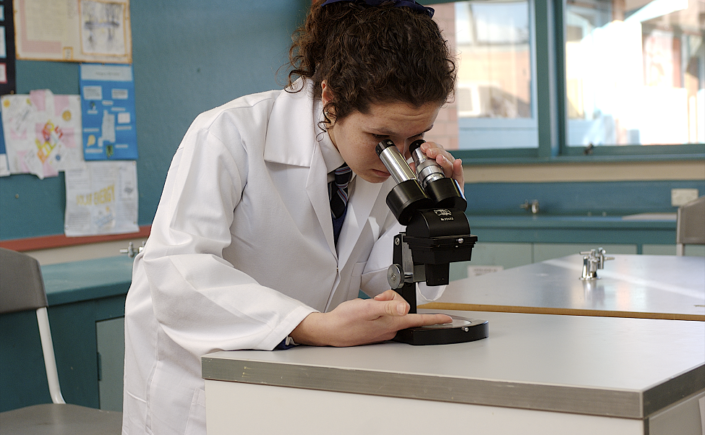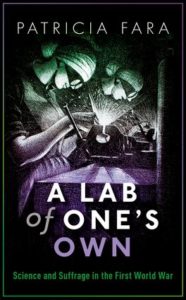Here are five tips based on success stories of the past but designed for ambitious young women of today
In 1909, the Australian suffragist Muriel Matters hit headlines around the world when she flew over London in a dirigible, showering the crowds below her with thousands of campaign leaflets. Although British women were still not able to vote, they could and did fight for their country during the First World War. Getting a degree was even harder then than now, but these pioneers were determined to succeed. When the men went overseas, female scientists moved up to take over their positions. They wanted better opportunities not only for themselves, but also for the women who would follow them 100 years later.
Tip One: Do what you want to do, not what your parents or teachers think you should do.
Helen Gwynne-Vaughan was born into a dream life: her family was rich, travelled throughout the world and bought her all the beautiful clothes she asked for. But her heart was set on something different: she wanted a career as a scientist. After many family fights, when she was 21 she at last persuaded her parents to let her study biology, and she never looked back. She came top in all the exams, got a position as a lecturer, and became head of department at Birkbeck College in London.
Tip Two: Somebody has to be first – and it could be you.
Hertha Ayrton was one of the earliest female maths students in Britain, and she won prizes for finding a way to make sure that electric street lights shone steadily without spluttering. Speaking to a journalist at the beginning of the last century, she formulated a mission statement for female scientists: ‘I do not agree with sex being brought into science at all. The idea of “woman and science” is completely irrelevant. Either a woman is a good scientist, or she is not.’ Ignoring setbacks, she became the first female member of the Institution of Electrical Engineers, and the first woman to be allowed inside London’s Royal Society and present her own research.
Tip Three: If you want the top job, have the confidence to apply for it.
In 1892, Emily Lloyd worked out how to get the position she wanted. The Royal Institute of Chemistry allowed women to write papers for their journal, but did not permit them to become members. She just knew that she was good enough to belong – and she also realised that the only way to succeed was to apply. So she entered herself for the examinations and when she passed with flying colours, the Institute was forced to admit her. Only later did they discover the true identity of the candidate who signed herself E Lloyd.
Tip Four: Embrace adventure and ignore convention.
Edith Stoney taught physics in London, but during the First World War she volunteered to join an all-female medical unit travelling to Serbia. She found herself wiring up generating systems in sub-zero temperatures, putting up tents in tropical heat waves, and operating X-ray machines behind enemy lines. Like the doctors she travelled with, she welcomed this opportunity to act independently and makes decisions on her own initiative. Caring little for her appearance, she was dressed in ‘rubber overall, thick rubber gauntlet gloves…her whole mind centred on her work’ – and she was rewarded with multiple military distinctions.
Tip Five: Be prepared to go in new directions.
You have to choose for yourself what you want to do with your life, but there is nothing wrong in changing your mind and switching to something you think is more worthwhile. As a small girl, Ray Strachey loved maths, and was thrilled when she won one of the few places for women at Cambridge University. But when she should have been studying, she spent much of her time organising suffrage demonstrations to win the vote. She decided that getting equality for women was the most important contribution she could make to society. Regretfully turning her back on maths, she dedicated her life to making sure that future generations of women would enjoy the same privileges as men,
By Patricia Far, author of A Lab of One’s Own


Leave a Reply